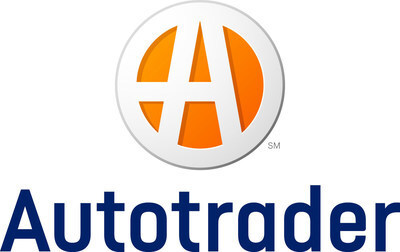NEW YORK, Feb. 7, 2025 -- Report with market evolution powered by AI - The global smart waste management market size is estimated to grow by USD 4.62 billion from 2025-2029, according to Technavio. The market is estimated to grow at a CAGR of 21.6% during the forecast period. Increasing urbanization leading to urban waste generation is driving market growth, with a trend towards rise in number of strategic partnerships for smart waste management solutions. However, challenges associated with effective deployment of smart waste management solutions poses a challenge. Key market players include Aco Recycling, Big Belly Solar, LLC., Bine sp. Z o. O., BRE Group, Covanta Holding Corp., Ecube Labs, Enevo Inc., Evreka Yazilim Donanim Danismanlik Egitim Sanayi ve Ticaret A.S., Kantor Waste4Change, Mr. Fill B.V., Nordsense, Pepperl and Fuchs SE, Republic Services Inc., RTS Holding Inc., SENSONEO j. S. A., SUEZ SA, Veolia, Waste Harmonics LLC, Waste Management Inc., and Wellness TechGroup.
Key insights into market evolution with AI-powered analysis. Explore trends, segmentation, and growth drivers- View Free Sample PDF
Smart Waste Management Market Scope | |
Report Coverage | Details |
Base year | 2024 |
Historic period | 2019 - 2023 |
Forecast period | 2025-2029 |
Growth momentum & CAGR | Accelerate at a CAGR of 21.6% |
Market growth 2025-2029 | USD 4619.7 million |
Market structure | Fragmented |
YoY growth 2022-2023 (%) | 16.1 |
Regional analysis | North America, Europe, APAC, South America, and |
Performing market contribution | North America at 35% |
Key countries | US, Germany, China, France, Canada, UK, Japan, |
Key companies profiled | Aco Recycling, Big Belly Solar, LLC., Bine sp. Z o. |
Market Driver
The Smart Waste Management Market is experiencing significant growth due to urbanization and smart city initiatives. Key players in the market include Covanta Holding Corporation, Suez Environmental Services, Veolia Environmental Services, Bigbelly Inc, Waste Management, Inc, Sensoneo, Enevo Oy, and others. Trends in the market include the use of advanced technology and innovative strategies for efficient waste collection and disposal. Concerned authorities are focusing on environmental sustainability and stricter environmental regulations. Operational costs are a market restraint, but the use of sensors in waste collection services, route optimization, and real-time monitoring help reduce expenses. Historical data analysis of fill patterns, driver routes, and schedules also contributes to efficiency. Companies are investing in IoT-based systems, such as smart bins and disposal tags, for residential buildings, commercial spaces, and public places. The market drivers are the interest of companies in renewable benefits, recycling of plastic and e-waste, and the municipal and industrial sectors' need for sustainable waste management. Smart Collection, Smart Disposal, and Solid Waste segments are expected to dominate the market. The European Commission and the Government of Canada are also promoting smart waste management through environmental awareness and regulations. The waste management sector includes collecting, transportation, processing, and disposal of solid municipal waste, urban waste collection, waste material services, and more. The use of cameras, mobile computers, RFID, GPS, IoT sensors, and waste segregation technologies is increasing. The chemical manufacturing industry generates a large volume of waste, and companies are focusing on reducing carbon emissions through clean energy solutions and reusing resources like methane and CO2 gas. Innovative strategies include the use of sensors in waste collection vehicles for real-time tracking and optimization, and the implementation of cloud-based technologies for data analytics. The market is expected to grow despite higher operational costs due to the benefits of smart waste management for public health, environmental regulations, and the reduction of greenhouse gas emissions.
Vendors in the smart waste management market are forming strategic partnerships with various entities, including government authorities and other vendors. These collaborations enable market expansion and revenue sharing. These partnerships offer real-time information tracking for end-users, enabling data-driven decision-making and real-time monitoring of trash levels. The rise in strategic alliances is boosting the implementation of smart waste management solutions, leading to the deployment of efficient systems worldwide. These solutions will be compatible with advanced technologies and components integrated into trash bins, providing real-time waste collection information. This trend will fuel the growth of the global smart waste management market throughout the forecast period.
Request Sample of our comprehensive report now to stay ahead in the AI-driven market evolution!
Market Challenges
- The Smart Waste Management market is growing due to urbanization and smart city initiatives, but faces challenges such as operational costs and environmental regulations. Trash collectors deal with waste or garbage production, while concerned authorities focus on public health and environmental sustainability. Recycling and disposal are key areas of innovation, with companies like Covanta Holding Corporation, Suez Environmental Services, and Veolia Environmental Services leading the way. Advance technology and sensors play a major role, with IoT-based systems and route optimization providing efficiency gains. E-waste management is a significant market driver, with key players offering reprocessing waste services. However, higher operational costs can be a market restraint. Companies are investing in capital for smart waste management solutions for residential buildings, commercial spaces, and public places using sensor-based containers, vacuum containers, and disposal tags. Solid municipal waste and urban waste collection are major segments, with the European Commission and governments pushing for strict environmental regulations. The waste management sector is also exploring clean energy solutions and renewable resources to reduce carbon emissions.
- Smart waste management involves the collection, disposal, and recycling of trash. Private companies and municipalities use trucks to collect waste from sensors-equipped bins, which send signals to the trucks' readers. Ineffective sensor deployment can lead to incorrect information, such as overfilled bins being reported as full or underfilled bins being overlooked. This can result in inefficient waste collection and recycling processes. To optimize these systems, it's crucial to ensure accurate sensor deployment and regular maintenance. Smart waste management solutions aim to reduce operational costs, minimize environmental impact, and enhance overall efficiency.
Discover how AI is revolutionizing market trends- Get your access now!
Segment Overview
This smart waste management market report extensively covers market segmentation by
- Application
- Collection
- Landfill
- Recovery And Recycling
- Processing
- Type
- Solid Waste
- Special Waste
- E-waste
- Geography
- North America
- Europe
- APAC
- South America
- Middle East And Africa
1.1 Collection- The collection segment of the global smart waste management market holds the largest share due to the traditional method of waste management facing challenges such as uneven management of domestic, industrial, and environmental wastes, leading to pollution and health hazards. Smart waste management systems address these issues by automating waste management through smart technology, minimizing human intervention, and reducing time and effort. These solutions enable efficient waste disposal by optimizing truck routes and analyzing trash levels in bins. With the increasing production of solid waste in municipalities, amounting to 2.01 billion tons per year, and projected to reach 3.40 billion tons by 2050, smart waste management is crucial for managing waste effectively. By connecting garbage collection and disposal infrastructure and devices across cities and communities, smart waste management plays a significant role in making cities more efficient and sustainable. Companies, hotels, and enterprises are partnering with smart waste management solution providers to integrate these solutions for managing and collecting waste.
Download a Sample of our comprehensive report today to discover how AI-driven innovations are reshaping competitive dynamics
Research Analysis
Smart Waste Management refers to the implementation of technology and data analytics in waste collection and disposal processes to optimize resources, reduce costs, and improve efficiency. In residential buildings, commercial spaces, and public places, sensor-based containers and vacuum systems are used to monitor the volume of waste and trigger automatic collection. IoT-based waste bins with sensors, cameras, mobile computers, RFID, and GPS enable intelligent monitoring, route optimization, and waste segregation. Solid municipal waste is collected using sensor technologies and disposed of through waste processing facilities. Disposal tags help track waste disposal and ensure compliance with regulations. Smart city initiatives are driving the adoption of these technologies to create sustainable waste management systems. The integration of IoT sensors, cameras, and mobile computers enables real-time monitoring and analysis of trash production, leading to more effective and efficient waste management services.
Market Research Overview
The Smart Waste Management market is a growing sector driven by urbanization, smart city initiatives, and concerned authorities' increasing focus on environmental sustainability and public health. The market is characterized by advance technology and innovative strategies, including sensor-based waste collection and IoT-based systems. Operational costs are a significant concern, with the use of sensors, route optimization, and real-time monitoring helping to improve efficiency and reduce expenses. Environmental regulations and the interest of companies in renewable benefits are also key market drivers. Key market insights reveal that solid municipal waste, e-waste, and commercial waste segments are the largest contributors to the market. Historical data analysis of fill patterns, driver routes, and schedules helps optimize waste collection services, while remote monitoring and fuel prices impact operational costs. Sustainable waste management, data analytics, and government initiatives are also significant factors influencing the market. The market is expected to grow significantly due to the increasing volume of waste, the need for efficient waste management, and the availability of capital investments. Companies are investing in smart solutions such as sensor-based containers, vacuum containers, disposal tags, and fleet trucks to reduce carbon emissions and improve waste management sector efficiency. The use of sensors, RFID, GPS, and IoT sensors in waste segregation and waste processing is also gaining popularity. The European Commission and the Government of Canada are leading the way in implementing strict environmental regulations and promoting sustainable waste management practices. The market also includes the management of bio-medical waste, methane emissions from landfills, and the recycling of plastic and e-waste. The waste management industry is evolving to include water management, traffic management, energy management, and fleet management, with the use of short-range and wide-area IoT devices and real-time tracking. The market is expected to face market restraints due to higher operational costs and the need for capital investments. The market is expected to grow significantly in the coming years due to the increasing focus on environmental sustainability, the availability of renewable energy resources, and the need for efficient waste management solutions.
Table of Contents:
1 Executive Summary
2 Market Landscape
3 Market Sizing
4 Historic Market Size
5 Five Forces Analysis
6 Market Segmentation
- Application
- Collection
- Landfill
- Recovery And Recycling
- Processing
- Type
- Solid Waste
- Special Waste
- E-waste
- Geography
- North America
- Europe
- APAC
- South America
- Middle East And Africa
7 Customer Landscape
8 Geographic Landscape
9 Drivers, Challenges, and Trends
10 Company Landscape
11 Company Analysis
12 Appendix
About Technavio
Technavio is a leading global technology research and advisory company. Their research and analysis focuses on emerging market trends and provides actionable insights to help businesses identify market opportunities and develop effective strategies to optimize their market positions.
With over 500 specialized analysts, Technavio's report library consists of more than 17,000 reports and counting, covering 800 technologies, spanning across 50 countries. Their client base consists of enterprises of all sizes, including more than 100 Fortune 500 companies. This growing client base relies on Technavio's comprehensive coverage, extensive research, and actionable market insights to identify opportunities in existing and potential markets and assess their competitive positions within changing market scenarios.
Contacts
Technavio Research
Jesse Maida
Media & Marketing Executive
US: +1 844 364 1100
UK: +44 203 893 3200
Email: media@technavio.com
Website: www.technavio.com/
This News is brought to you by Qube Mark, your trusted source for the latest updates and insights in marketing technology. Stay tuned for more groundbreaking innovations in the world of technology.









